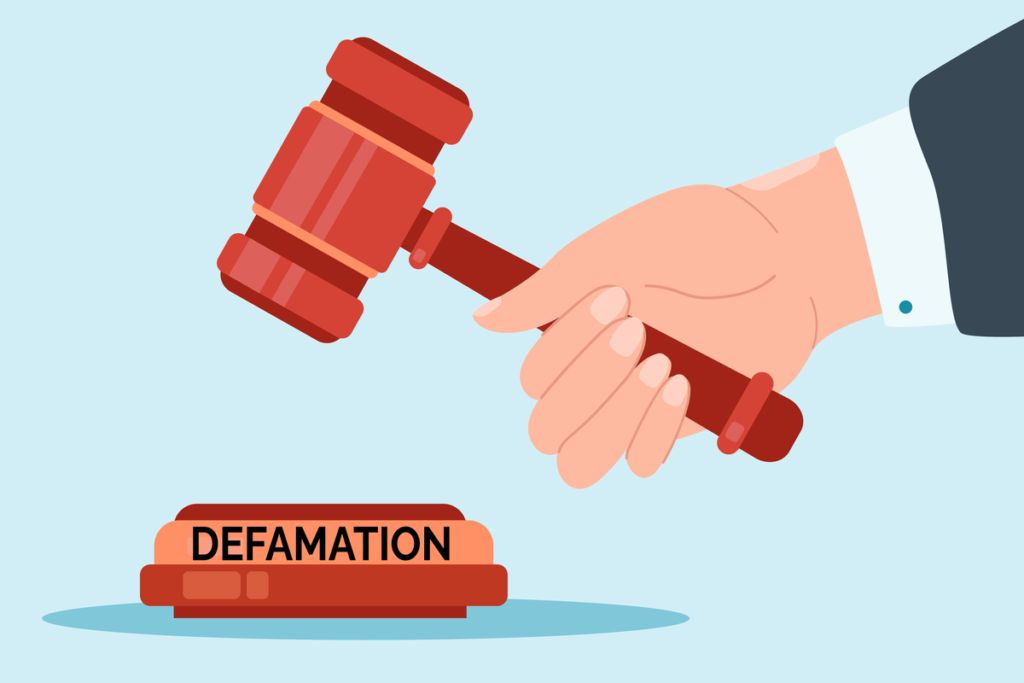July 30, 2022
Good morning. Every Saturday, we write about one specific right that we possess as citizens in our country. In today’s edition of “Know Your Rights”, we examine the rights against defamation in India.
KNOW YOUR RIGHTS – EDITION 50
Rights Against Defamation In India

After all the memes and media coverage, the thing people keep forgetting about the Depp v Heard case was that it was about defamation. Johnny Depp alleged that Amber Heard was trying to tarnish his reputation by citing abuse. Whether you disagree or agree with the outcome of that trial is a conversation for another day but now, let’s look at defamation in the Indian context. Because, believe it or not, words can hurt.
In India, defamation is considered both a criminal and civil offence. As a civil offence, it is punishable under the Law of Torts. A tort is literally a civil wrong, and tort laws look into remedies for them. This usually leads to monetary penalties. As a criminal offence, however, defamation is punishable with imprisonment under the Indian Penal Code (IPC), 1860. In fact, the IPC even defines defamation.
According to Section 499 of the IPC, “Whoever, by words either spoken or intended to be read, or by signs or by visible, representations makes or publishes any imputation concerning any other person intending to harm, or knowing or having reasons to believe that such imputation will harm the reputation of such person, is said, except in the cases hereinafter excepted, to defame that person.”
Basically, defamation can be of many types. The most common type is spoken or written. If spoken, it is called slander, and if written, it is libel. It needs to be something spoken, written or shown to someone other than the person it is about. And it needs to be about a person, not a community or group. It does not matter if that person is dead; as long as it’s an established person, it can be classified as defamation.
Another thing to remember is that something will only be perceived as defamatory if the imputation is intended to harm somebody. Even if it is believed that something said or done might tarnish a person’s reputation, that is good enough for a court case. The work might not actually go on to affect the person or their social standing, but the intention or assumed intention is all it takes.
Section 499 also points out 10 exceptions to alleged defamatory remarks. If any of the following points hold true to the assumed imputation, it is no longer punishable by law:
- It is not defamatory if the imputation is in defence of truth necessary for the public good.
- It is not defamatory to comment on the public conduct of a public servant as long as it is done in good faith.
- It is not defamatory to express an opinion on any person touching on any public question as long as it is done in that context.
- It is not defamatory to publish any report or account of a court proceeding.
- It is not defamatory to express an opinion on those proceedings and on the conduct of the people involved in that context.
- It is not defamatory to express an opinion on the merits of a public performance. This includes books, speeches, movies, etc.
- It is not defamatory to have a lawful authority censure one’s conduct in appropriate settings that concern the authority.
- It is not defamatory to accuse another person of misconduct in front of lawful authority.
- It is not defamatory to make an imputation on another’s character if it is done to protect one’s interest.
- It is not defamatory to caution a person against another if it is done for the good of the people involved.
If the defamatory statement or work does not fall under any of these exceptions, it is punishable by law. Under Section 500 of the IPC, the punishment is imprisonment that can extend to two years, or a fine, or both. If somebody publishes, prints or engraves anything deemed defamatory, Section 501 says that they will have to face imprisonment for up to two years, or a fine, or both.
In 2000, the Information Technology (IT) Act came into force and added electronic documents to the mix. Section 469 of IPC initially spoke about forgery that specifically focused on harming a person’s reputation. The IT Act simply added electronic records to this, and now anyone pretending to be you online can be imprisoned for up to three years, or be fined, or both.
Unfortunately, these laws have often been used to harass people in India. Some believe this is a complete impingement on one’s fundamental rights to the freedom of speech and expression. Others say that this is simply a necessary evil. Either way, given Indian jurisprudence, it is safe to say that the process of fixing a wrong becomes a punishment in itself in the country.

